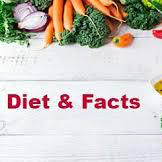Eating the right foods boosts your immunity — particularly plants that are intensely flavored (herbs and spices) and/or intensely colored.
These plant foods are loaded with antioxidants and other immune-boosting micronutrients.
VEGETABLES
• Eat the colors of the rainbow. Examples are green leafy vegetables of any kind (such as spinach, kale, romaine lettuce, chard, arugula), red cabbage, red onions, peppers, beets, carrots, tomatoes, sweet potatoes and eggplant.
• Cruciferous vegetables include cauliflower, broccoli, cabbage, kale, brussels sprouts, bok choy, radishes, arugula, watercress, mustard greens, collard greens and turnip greens. They are very healthful and contain a strong cancer-fighting substance that is destroyed by cooking. (So include some raw cruciferous vegetables in your salads or before eating cooked ones).
• Legumes: beans, lentils, chick peas and split peas.
• Allium family of vegetables, which includes onions, garlic, shallots, leeks and chives.
MUSHROOMS
They are a fungus rather than a vegetable, and the “intense color and/or flavor rule” doesn’t apply. Eating them a few times a week boosts your immunity.
HERBS AND SPICES
There are too many to mention here, but use them to add flavor to your meals. Turmeric, which is both intensely flavored and intensely colored, is the “king of health-promoting spices.” Adding black pepper to turmeric increases the effectiveness by 1,000 times.
FRESH (BUT NOT DRIED) FRUIT
Again, intense color is important: oranges, pink grapefruit, mangoes, papaya, watermelon, kiwi fruit, dark grapes, dark plums, berries. Bananas, while not unhealthy, are a white fruit, and overrated as a health food.
WHOLE (UNPROCESSED) GRAINS
Intense color applies to grains as well, so the most healthful rice is black (“forbidden”) rice, next best red rice, followed by brown rice. Avoid white rice because it’s refined and has minimal nutrients.
When buying grain-based foods such as tortillas, watch for added sodium and sugar (4 grams = 1 teaspoonful). Check the food label and make sure the total carb:fiber ratio is 5:1 or less (multiply the fiber number by 5, and if the result is same or greater than the number for total carbs, that product has lots of healthy fiber and whole grains).
Dr. Fuhrman says “the whiter your bread, the sooner you’re dead.”


You must be logged in to post a comment.